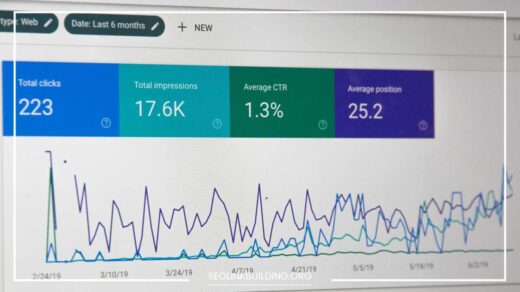An Insight Into Google Ranking and SEO

An Insight Into Google Ranking and SEO: Unveiling the Secrets to Higher Visibility
In today’s digital landscape, ranking high on Google Search Engine Results Pages (SERPs) is paramount for any website seeking success.
This coveted position translates into increased organic traffic, brand awareness, and ultimately, conversions. But what exactly determines where your website lands on the SERPs?
Enter the realm of Search Engine Optimization (SEO), a multifaceted strategy that unlocks the secrets to Google’s ranking algorithm.
This article delves into the inner workings of Google ranking and SEO, providing valuable insights to elevate your website’s visibility.
We’ll explore the core principles, key ranking factors, and essential SEO tactics to equip you for navigating the ever-evolving search engine landscape.
Demystifying Google’s Ranking Algorithm: Understanding the User Focus
Google’s ranking algorithm, while shrouded in some secrecy, prioritizes one overarching goal: delivering the most relevant and valuable results to user search queries. It’s a complex system that considers hundreds of factors, but at its heart lies user intent.
Instead of simply matching keywords, Google strives to understand the searcher’s underlying purpose. Are they seeking informative content, a specific product, or local business information? By deciphering intent, Google tailors search results to provide the most effective answer.
This user-centric approach necessitates a shift in SEO strategy. It’s no longer enough to simply stuff keywords into your website. The emphasis lies on creating high-quality, informative content that genuinely addresses user needs and search queries.
Key Ranking Factors: The Building Blocks of SEO Success
While Google’s exact algorithm remains a mystery, SEO experts have identified crucial ranking factors that significantly impact your website’s visibility. Here’s a breakdown of the essential categories:
1. On-Page Optimization: This refers to optimizing the elements directly on your website that Google’s crawlers can analyze. Here are some key aspects:
- Content Quality: In-depth, well-researched content that resonates with your target audience is king. Focus on providing value, answering user questions comprehensively, and maintaining a clear and concise writing style.
- Keyword Targeting: Integrate relevant keywords throughout your content, including titles, meta descriptions, headings, and naturally within the body text. However, avoid keyword stuffing, which can penalize your ranking. Utilize long-tail keywords, which are more specific phrases with lower competition, to target user intent more effectively.
- Website Structure: A clear and logical website structure with proper navigation allows search engines to crawl and index your pages efficiently. Utilize internal linking to connect related content and ensure a smooth user experience. Create a sitemap to further aid search engine crawlers.
2. Off-Page Optimization: This encompasses factors outside your website that influence Google’s perception of its authority and trustworthiness.
- Backlinks: High-quality backlinks from reputable websites act as votes of confidence for your website. Earning backlinks organically by creating valuable content that others want to link to is the ideal approach. Guest blogging on relevant websites, creating infographics, and participating in online communities are effective strategies for building backlinks.
3. Technical SEO: This involves ensuring the technical aspects of your website are optimized for search engines and users. Elements like:
- Mobile-Friendliness: With the majority of searches now conducted on mobile devices, a responsive website design that adapts seamlessly across various screen sizes is crucial. Utilize Google’s Mobile-Friendly Test tool to ensure your website passes muster.
- Page Speed: Fast loading times are essential for both SEO and user experience. Implement website speed optimization techniques such as image compression, caching, and minifying code to ensure your pages load quickly. Tools like Google PageSpeed Insights can help identify areas for improvement.
- Website Security: A secure website with a valid SSL certificate fosters trust with users and search engines alike.
4. Expertise, Authoritativeness, and Trustworthiness (E-A-T): Google places a high value on websites that demonstrate expertise in their niche. Building EAT involves establishing yourself as a credible source through:
- High-Quality Content: Creating well-researched, informative content authored by subject matter experts strengthens your website’s authority.
- Author Credentials: Highlighting the qualifications and experience of your content creators reinforces user trust and expertise. Consider author bios and showcasing relevant certifications or awards.
- Website Reputation: Maintaining a positive online reputation through positive reviews, mentions in industry publications, and active engagement in online communities builds trust with both users and search engines.
5. User Experience (UX): Prioritizing user experience is a critical aspect of modern SEO. Here’s how:
- Engaging Content: Develop content that keeps users engaged and coming back for more. This could
- Develop content that keeps users engaged and coming back for more. This could include interactive elements, visuals such as infographics and videos, and a well-structured writing style that utilizes bullet points and clear headings to break up text.
- Clear Navigation: A user-friendly website with intuitive navigation allows visitors to find the information they need quickly and efficiently. Utilize clear menus, breadcrumbs, and a site search function to enhance user experience.
- Mobile Responsiveness: As mentioned earlier, ensuring a seamless mobile experience is crucial for user satisfaction and SEO performance. Test your website across various mobile devices and browsers to identify any issues.
Beyond the Basics: Advanced SEO Techniques for Standing Out
Once you’ve mastered the SEO fundamentals, consider these advanced techniques to take your website to the next level:
- Structured Data Markup: Implementing structured data markup provides search engines with richer information about your content, which can lead to richer search results with information like ratings or product availability.
- Local SEO: If you have a local business, optimizing your website for local searches is essential. Claim your Google My Business listing, ensure your NAP (Name, Address, Phone number) consistency across directories, and encourage customer reviews.
- Voice Search Optimization: With the rise of voice search, consider how users might search for your content using natural language. Optimize your content with long-tail keywords and conversational language.
- Video SEO: Video content is a powerful engagement tool. Optimize your video titles, descriptions, and tags with relevant keywords. Additionally, create video transcripts to improve accessibility and searchability.
Keeping Up with the Ever-Changing Landscape: Staying Informed About SEO Trends
The world of SEO is constantly evolving. Here are some tips for staying ahead of the curve:
- Follow SEO Industry Leaders: Connect with SEO experts and publications on social media and subscribe to industry blogs and newsletters to stay updated on the latest trends and algorithm changes.
- Monitor Google Updates: Google frequently updates its search algorithm. Pay attention to official announcements from Google Search Central to understand how these updates might impact your SEO strategy.
- Utilize SEO Tools: Several SEO tools can help with keyword research, competitor analysis, backlink monitoring, and technical SEO audits. Utilize these tools to gain valuable insights and optimize your website effectively.
By understanding the core principles of Google ranking and SEO, and implementing the tactics outlined above, you can equip your website to climb the SERPs ladder and achieve greater visibility. Remember, SEO is a continuous process.
It requires dedication, ongoing content creation, and a willingness to adapt to the ever-changing search engine landscape. However, the rewards of higher rankings, increased organic traffic, and ultimately, a thriving online presence make the effort worthwhile.













